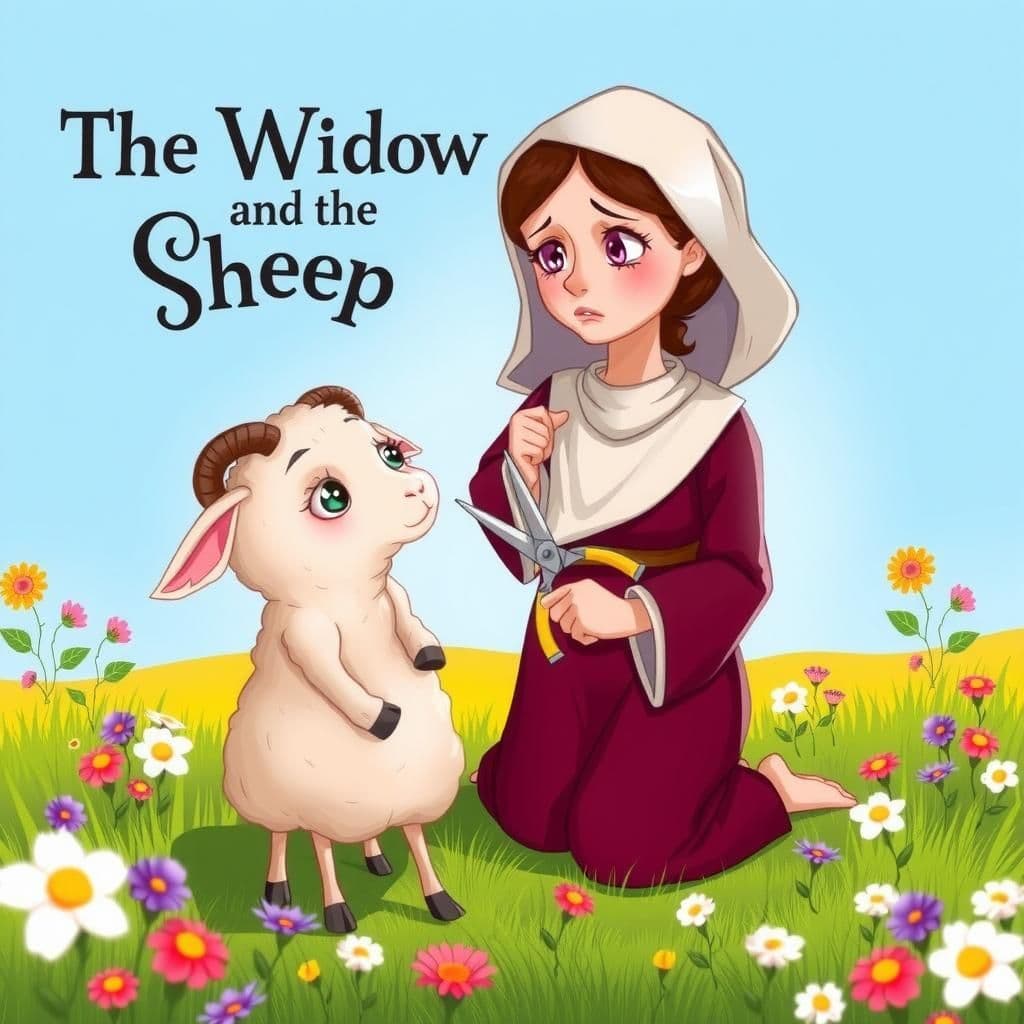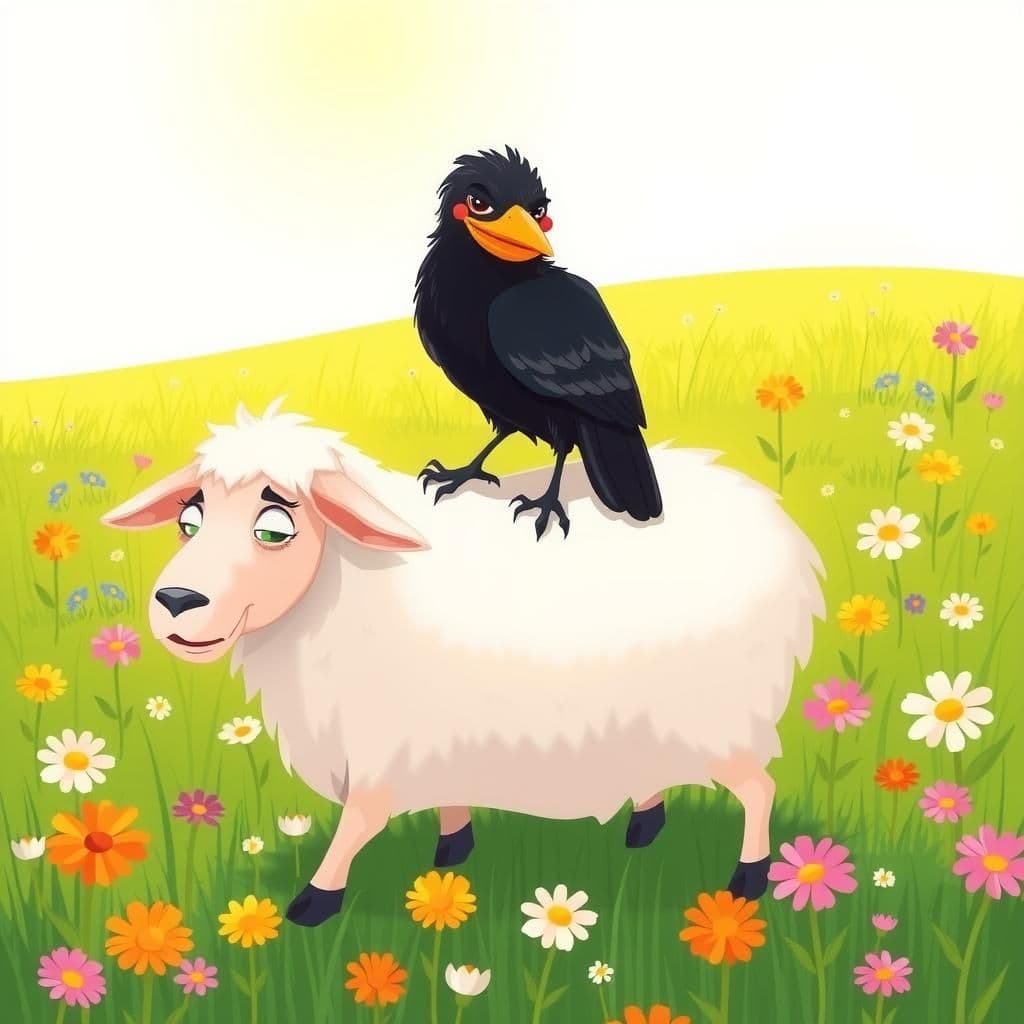The Widow and the Sheep
In this entertaining moral story, a poor widow attempts to shear her only Sheep herself to save money, but her clumsiness results in injuring the animal instead of simply taking its fleece. The Sheep wisely points out that while she aims to minimize expenses, her actions lead to greater suffering. This simple short story with moral teaches that the least outlay is not always the greatest gain, a lesson often found in popular moral stories and engaging moral tales.

Reveal Moral
"Attempting to save costs can lead to greater losses and unintended harm."
You May Also Like

The Crow and the Sheep
In the very short moral story "The Crow and the Sheep," a troublesome crow humorously bullies a sheep by riding on its back, showcasing her tendency to target the weak while avoiding stronger animals. The sheep points out that such behavior would not be tolerated by a dog, but the crow justifies her actions, claiming they help her survive. This easy small story with moral lessons highlights the importance of recognizing true strength and the consequences of bullying.

The Wolf and the Shepherd
In "The Wolf and the Shepherd," a shepherd learns a valuable lesson about trust when he mistakenly leaves his flock in the care of a seemingly harmless wolf. Initially wary, the shepherd eventually grows complacent, leading to the wolf's betrayal and the devastation of his sheep. This concise moral story serves as a cautionary tale for young readers about the dangers of misplaced trust in those who may have ulterior motives.

The Lion, the Bear, and the Fox
In this entertaining moral tale, two thieves steal a piano but are unable to fairly divide it, resorting to bribing a judge to settle their dispute. When their funds run dry, an Honest Man intervenes with a small payment, winning the piano, which his daughter then uses to train for boxing, ultimately becoming a renowned pugilist. This quick read story with moral highlights the value of integrity and unexpected paths to success in real-life stories with moral lessons.